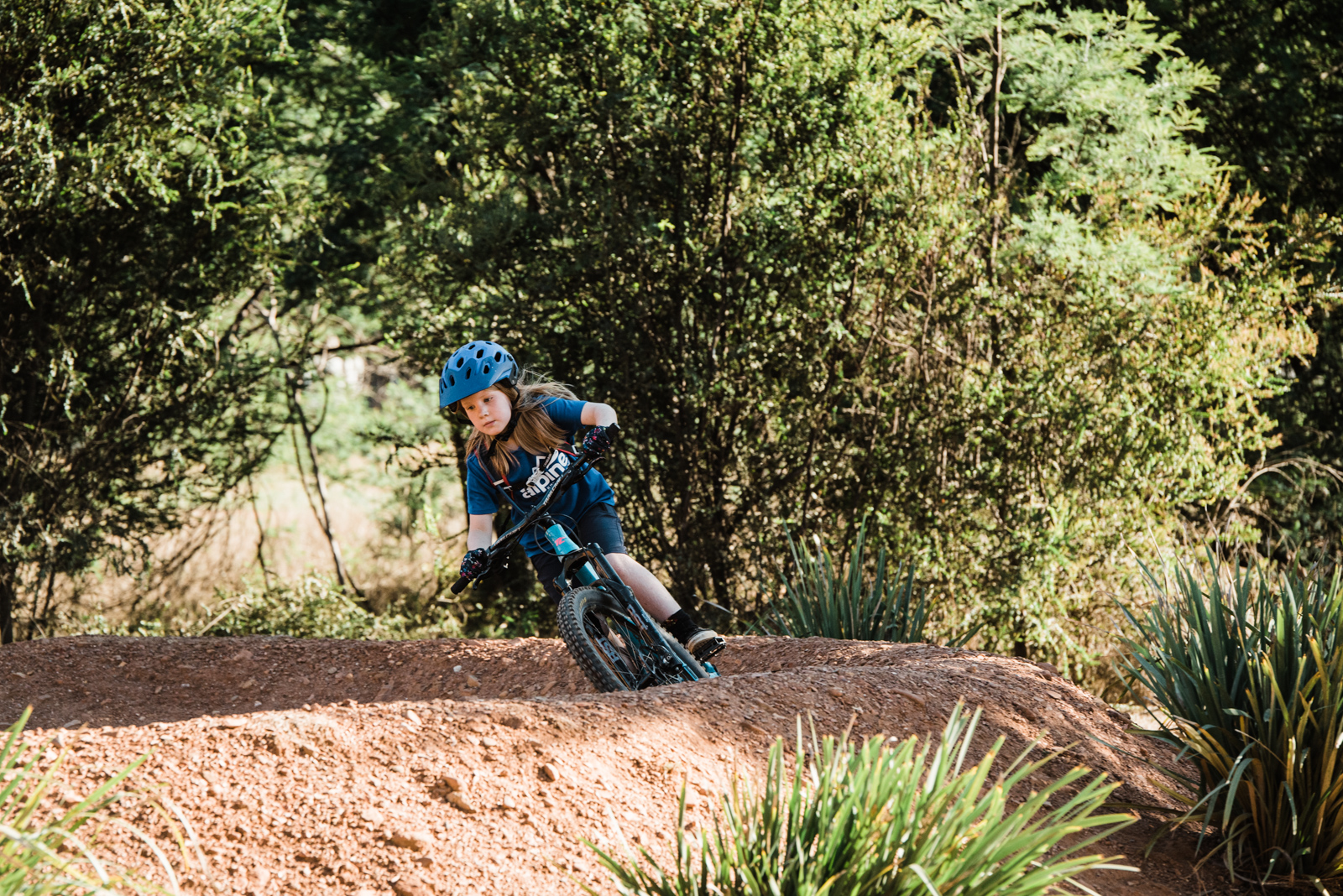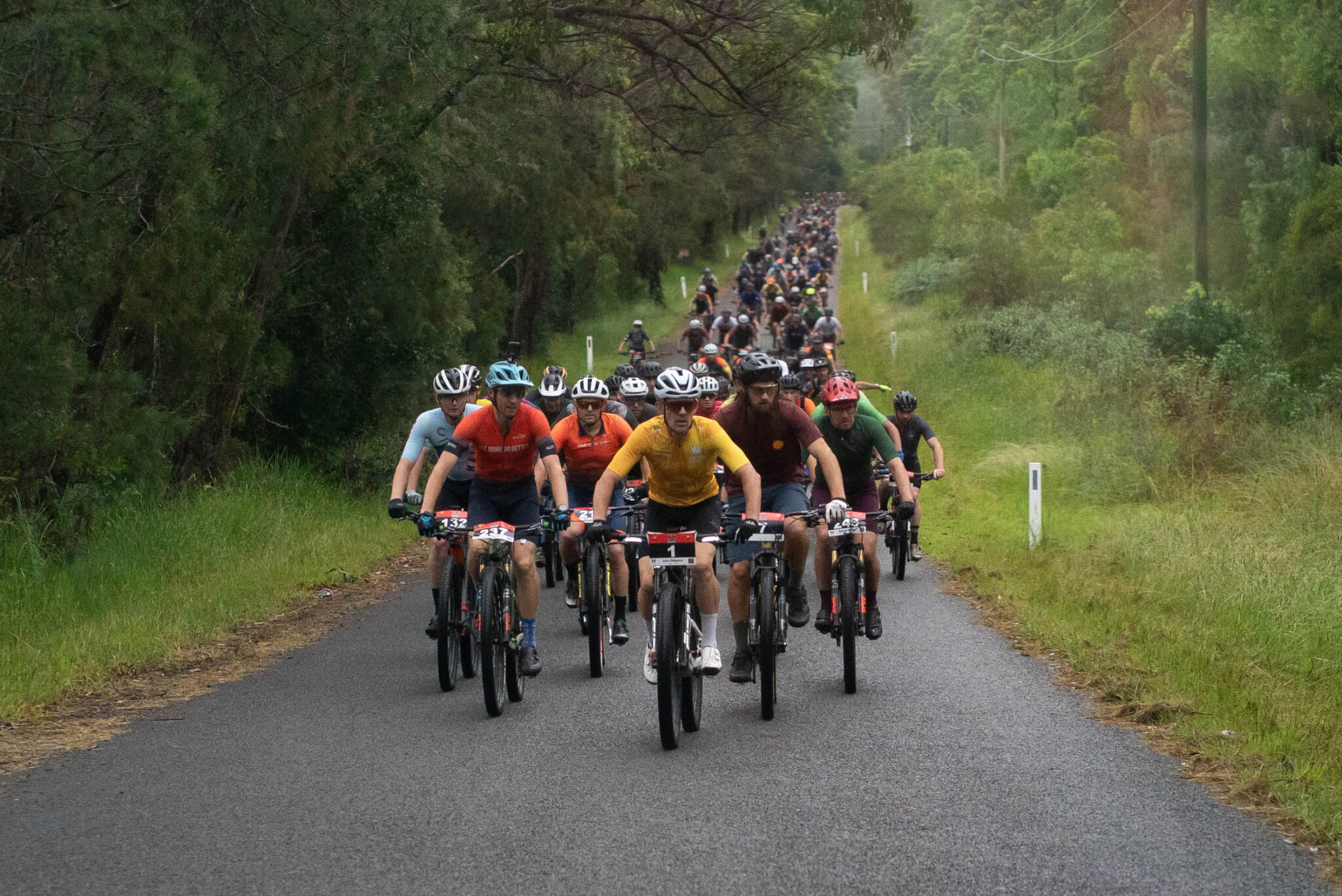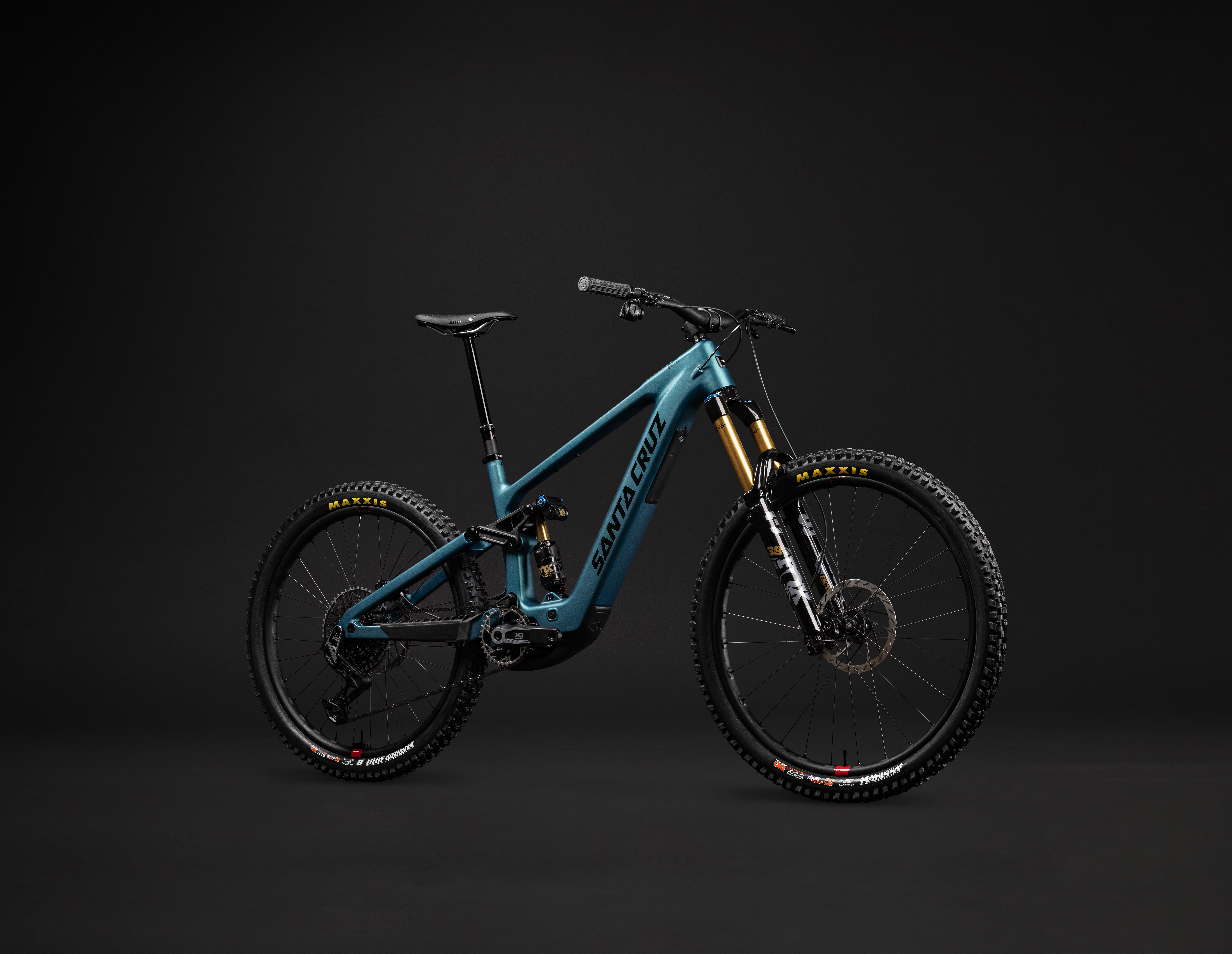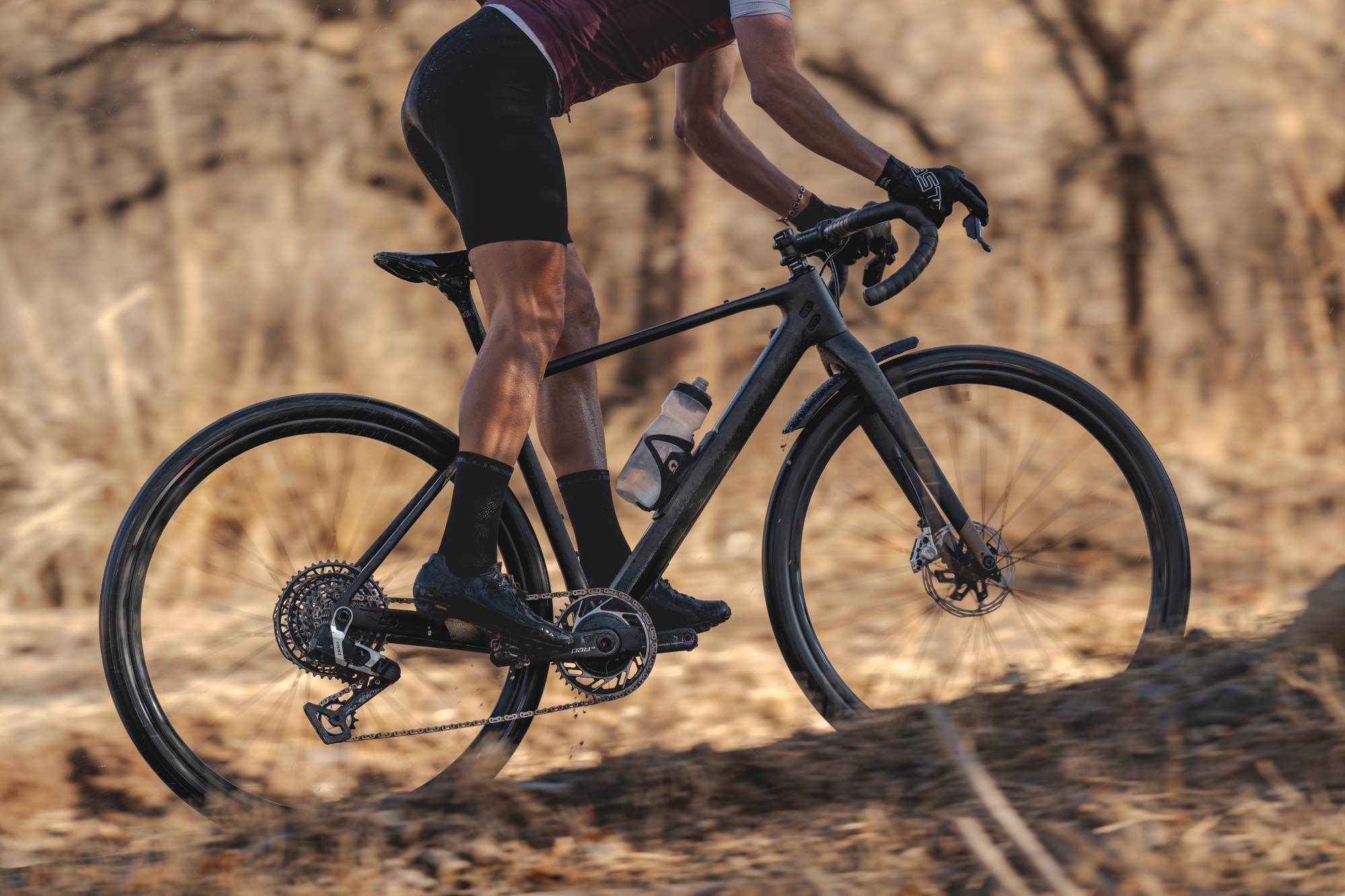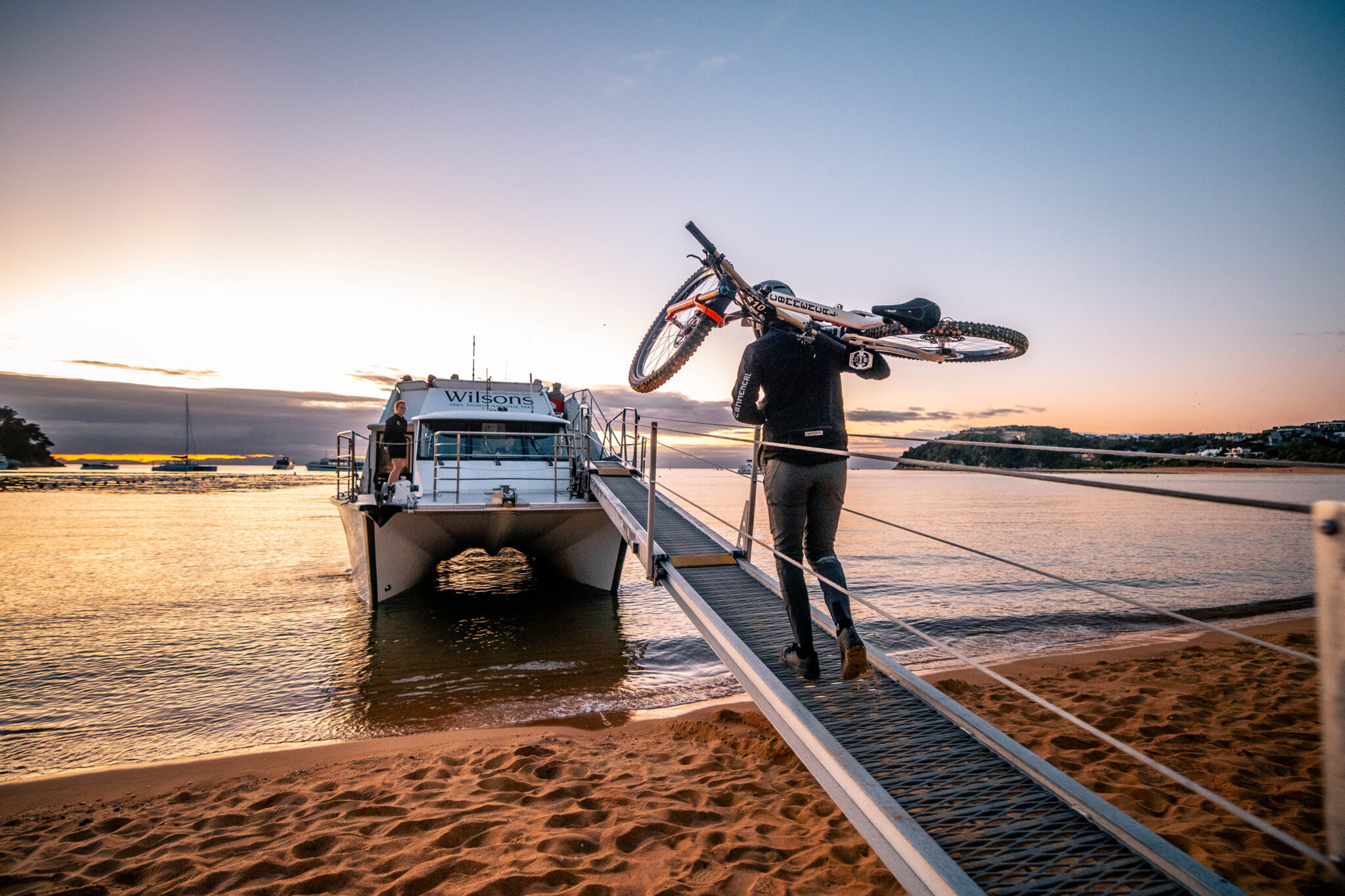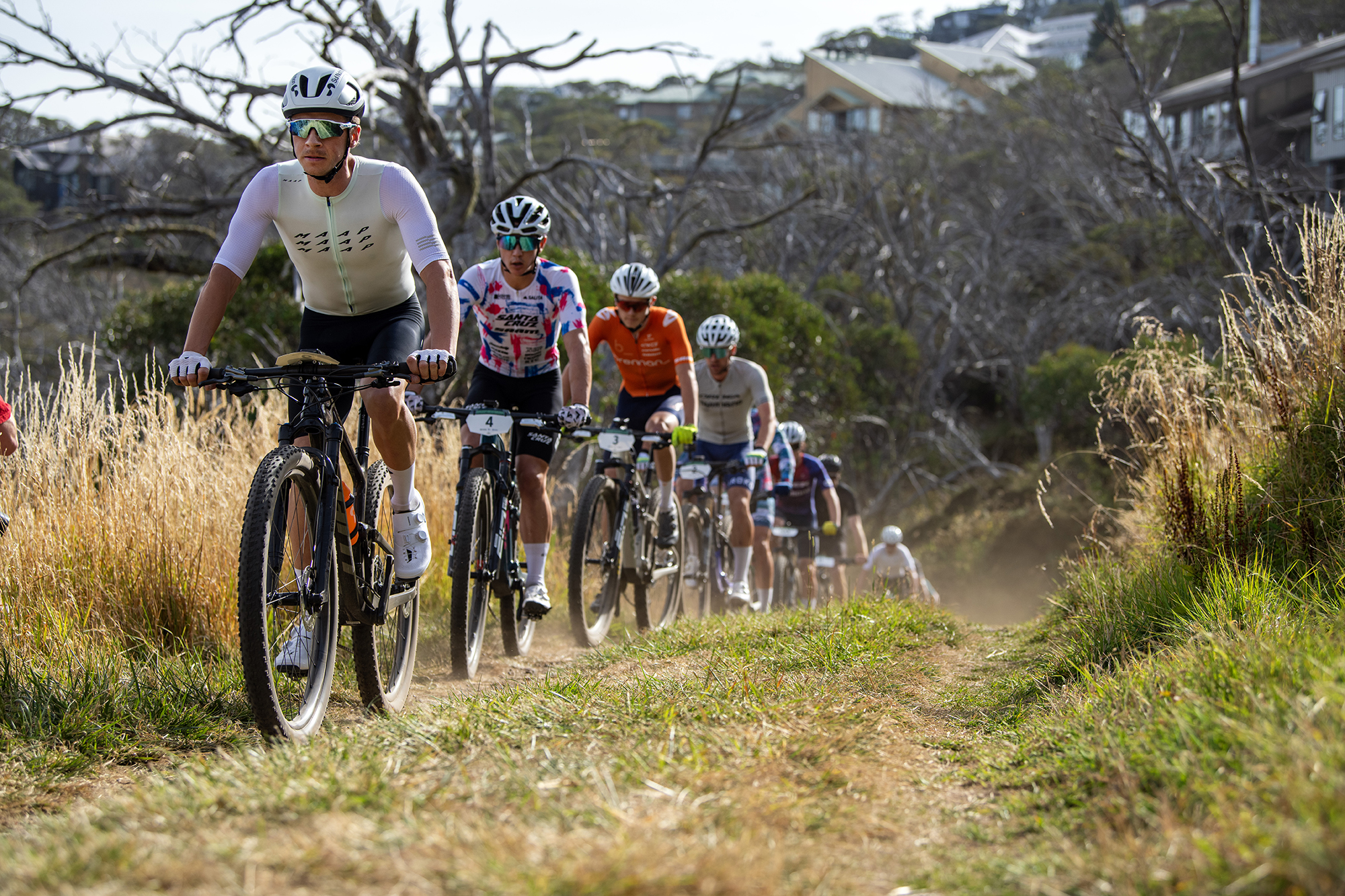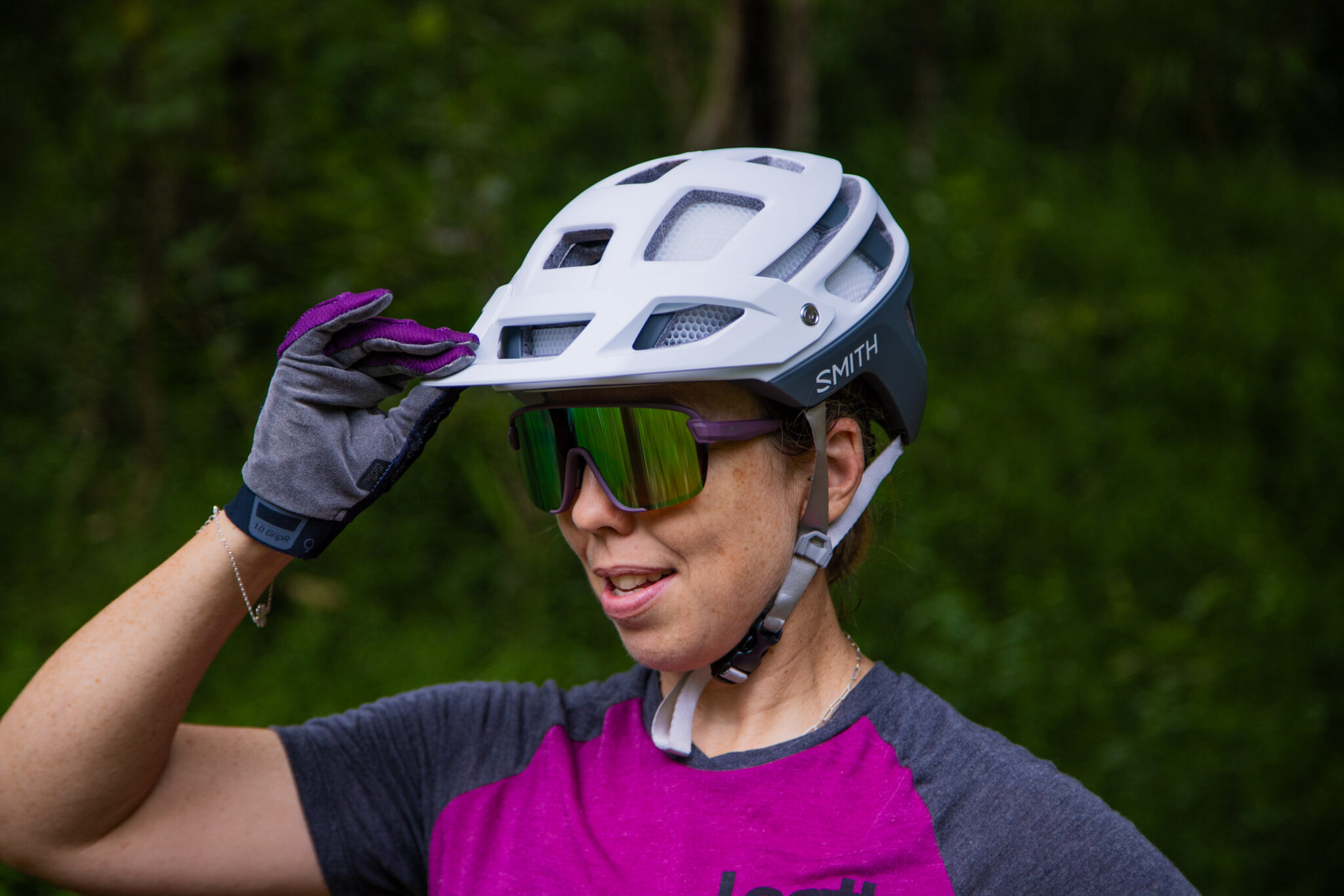Playing in the dirt - the next generation of mountain bikers
Youth development has generally been limited to elite junior racers, but nowadays more and more inclusive programs cater to all young people. Will Shaw looks into three programs with something on offer for everyone.
Words: Will Shaw
Photos: Mike Blewitt, Free Spirit Photography, Mandy Lamont
Aside from racing-based programmes, mountain biking is a sport that hasn’t had many pathways in place for young riders of all ability levels. Whilst in mainstream sports there are programmes aimed at all skill and interest levels, in mountain biking it’s primarily been the elite racers with access to development and coaching programmes.
With the explosion of the sport over the last few years, more and more schools, coaching companies, and bike clubs have stepped up to get the younger generations out there. What’s on offer doesn’t just focus on racing, and it’s clear to see the focus shifting to a more inclusive perspective.
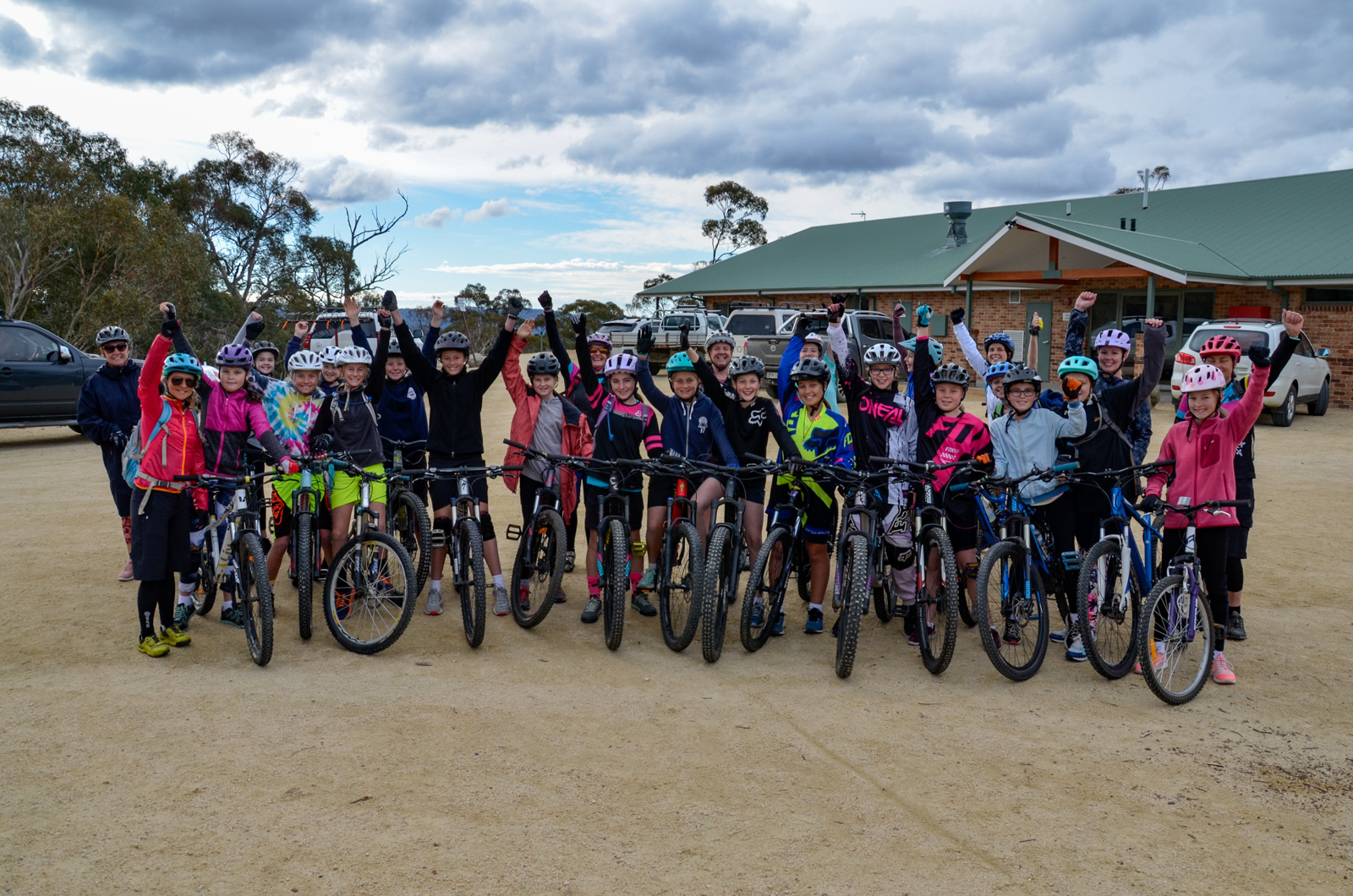
The Alpine Cycling Club, Snowy Mountains Grammar School, and Ride Technics are three organisations providing fantastic opportunities for young mountain bikers. In this article, we’re going to look at the approach these organisations take in helping young people find their path in mountain biking.
Out and about in the Australian Alps:
The Alpine Cycling Club (ACC) is based in the mountain biking haven of Bright. Unsurprisingly with the riding on offer in Bright and the surrounding Victorian High Country, there’s a keen contingent of young riders in town.
Christian Stewart is the ACC’s Junior Coordinator, and he says the youth programme that’s run in the 1st and 4th school terms has over 120 kids involved every week, with kids coming from as far as Wangaratta to participate.
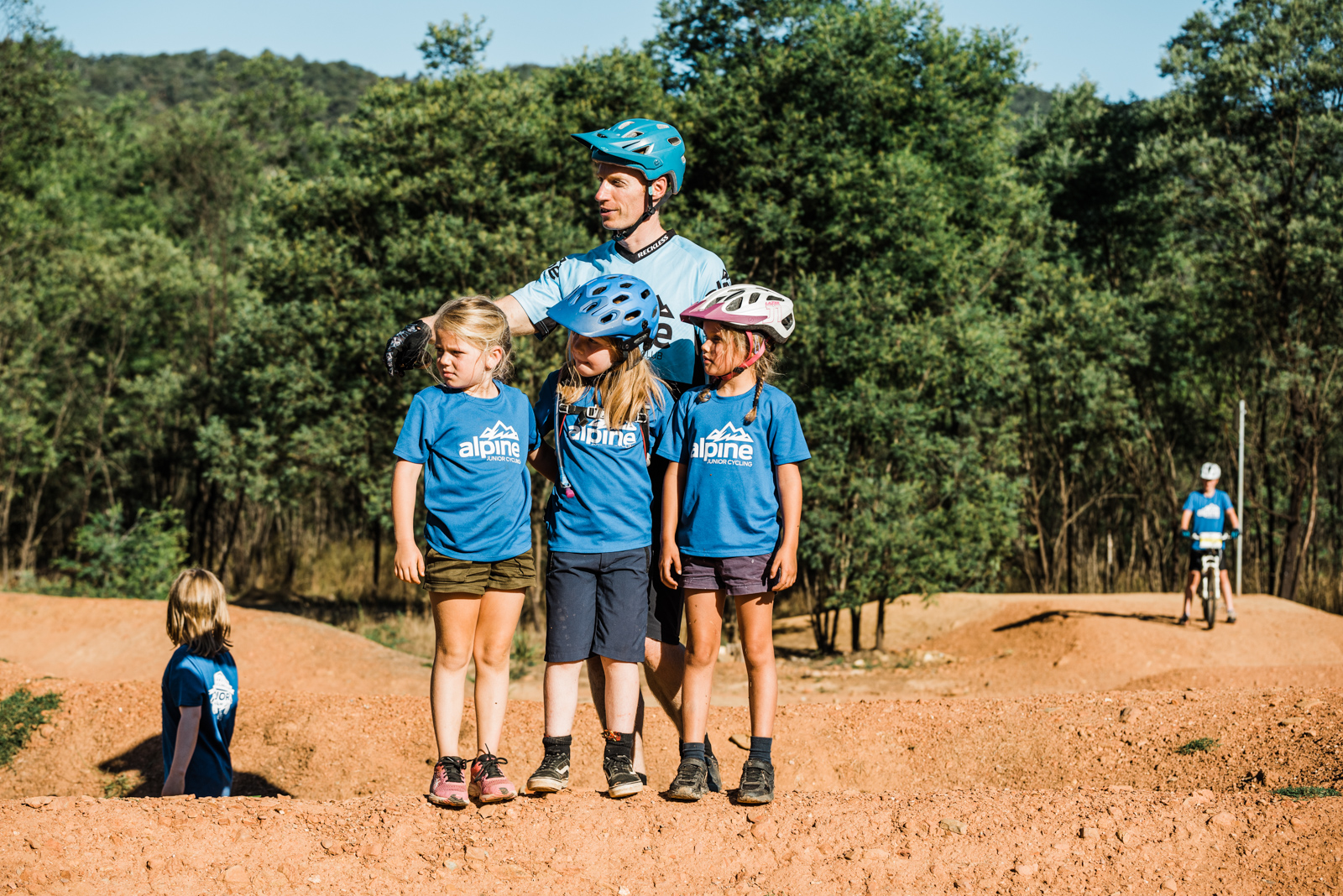
Whilst a junior mountain biking programme of this size in a regional town is mightily impressive, Christian said it all started with one parent organising a kids group ride over 10 years ago.
‘Like all great grassroots programmes, our youth programme started with one Dad taking a few kids out for a ride and it’s become what it is today. Kids from 4 – 16 all come along on a Tuesday night. All the ride leaders are volunteers, with additional MTBA level coaches providing regular instruction throughout the programme.’
Christian says the aim is to help kids improve and enjoy their riding within an inclusive environment. He says the kids are all very encouraging of one another, despite their varying ability levels and ambitions.
‘We have kids with additional needs riding bikes that assist their ability to access the trail network and enjoy our programme with their friends. That’s our club ethos and what we think mountain biking should be, having fun with your mates in a supportive environment.’
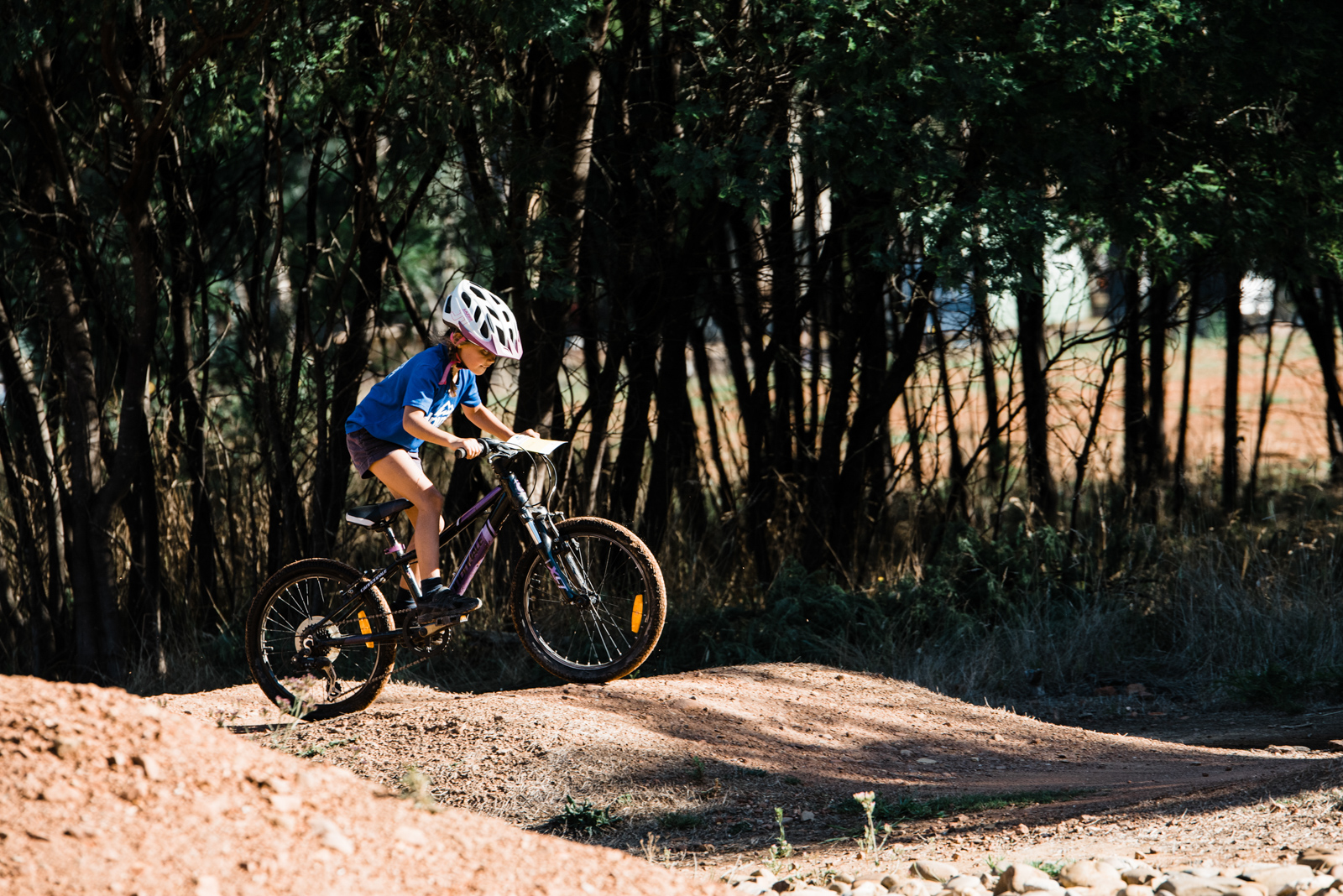
When asked about the how the programmes balance the kids who just want to enjoy riding, and those with the bug for competition, Christian says it’s a matter of getting the right kids in the right groups.
‘Some of the kids want to race, some of the kids want to ride jumps all the time, and some of the kids just want to ride a trail and tick it off. For example, picking their way down a double black gives some kids a huge sense of achievement. There’s also a sense of accomplishment that some kids enjoy after completing a long adventure style ride. We want to encourage the kids do what they enjoy while exposing them to as many different aspects of mountain biking as possible. They can race if they want but there’s many other sides of riding that are lots of fun.’
For the kids interested in racing or simply developing their gravity riding, the club has a progression squad aimed at youths in their early teenage years.
‘We’ve started a progression group this year, at around 13, aimed at kids developing gravity skills to enter the Victorian series. We want to have a gravity focus, but also some adventure rides to show them that side of the sport as well,’ says Christian.
Christian says the gender diversity has been great in the last few years, but there’s still room for improvement. The program has a 2:1 ratio of boys to girls in the younger groups and similar numbers in the progression squad. Christian says that up until the age of 11 the groups are mixed gender, but a change they’ve made that’s increased female retention is the introduction of all-female groups after the age of 11.
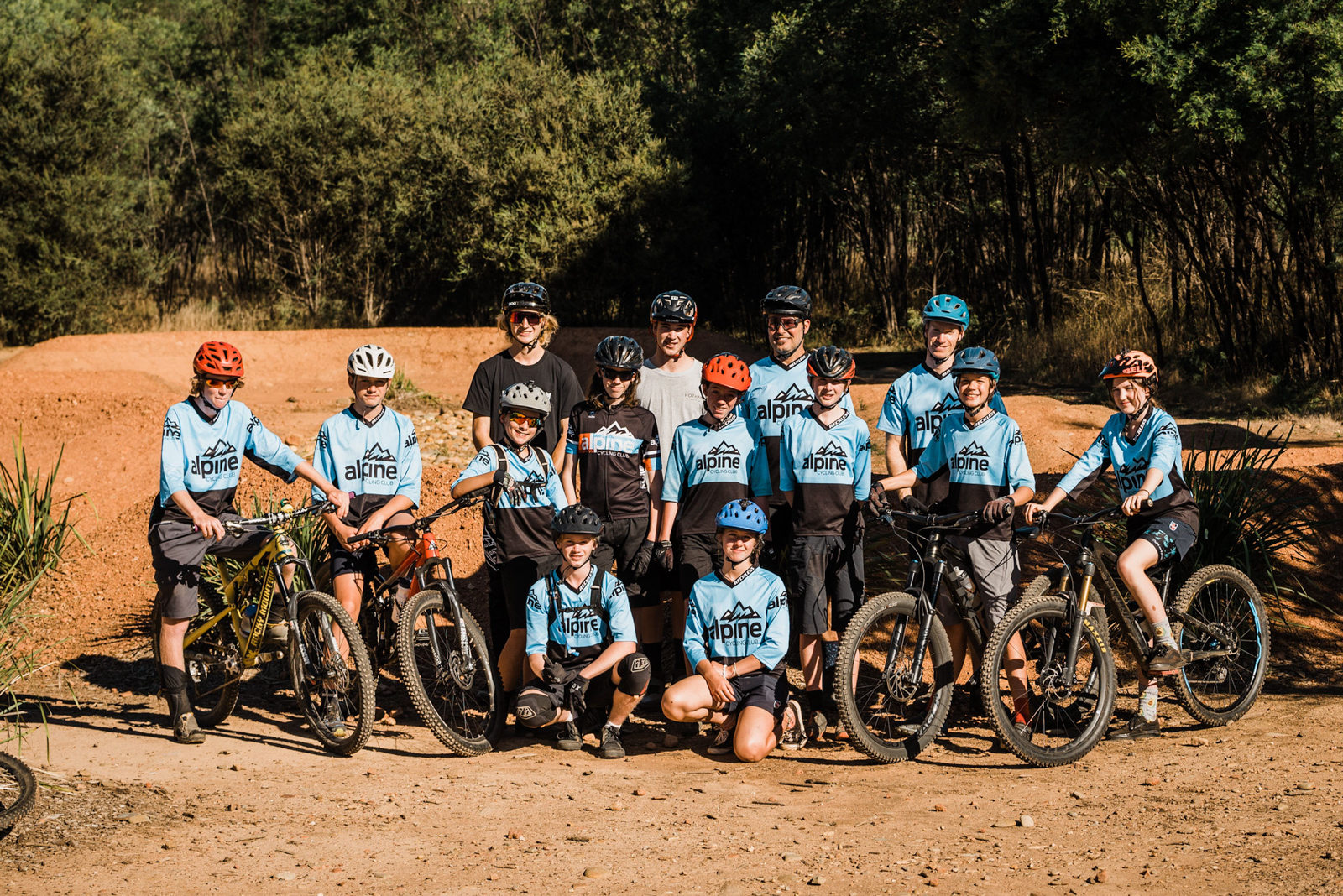
‘Up until about 11 we make the groups mixed gender, but after that we give them the choice, and it’s meant some girls feel more comfortable in a group that’s only girls. Then there’s other girls who’ve ridden with the boys their whole life, and they love pushing and being pushed by the boys.’
Another area where ACC’s junior programme is able to help keen youngsters is through the support of local shops. Christian says the shops in Bright have been fantastic in giving workshop demonstrations to the kids, and also providing servicing vouchers and prizes.
‘We have lots of support from the bike shops in Bright. They come down and show the kids some basics in terms of looking after their bikes, and through vouchers we’re able to support kids who display great attitudes and an enthusiastic approach to riding.’
Jake Grayson is a Bright local and has grown up within ACC’s junior programme. He says that the programme has increased his love of mountain biking by introducing him to lots of like-minded kids his age across a variety of cycling disciplines.
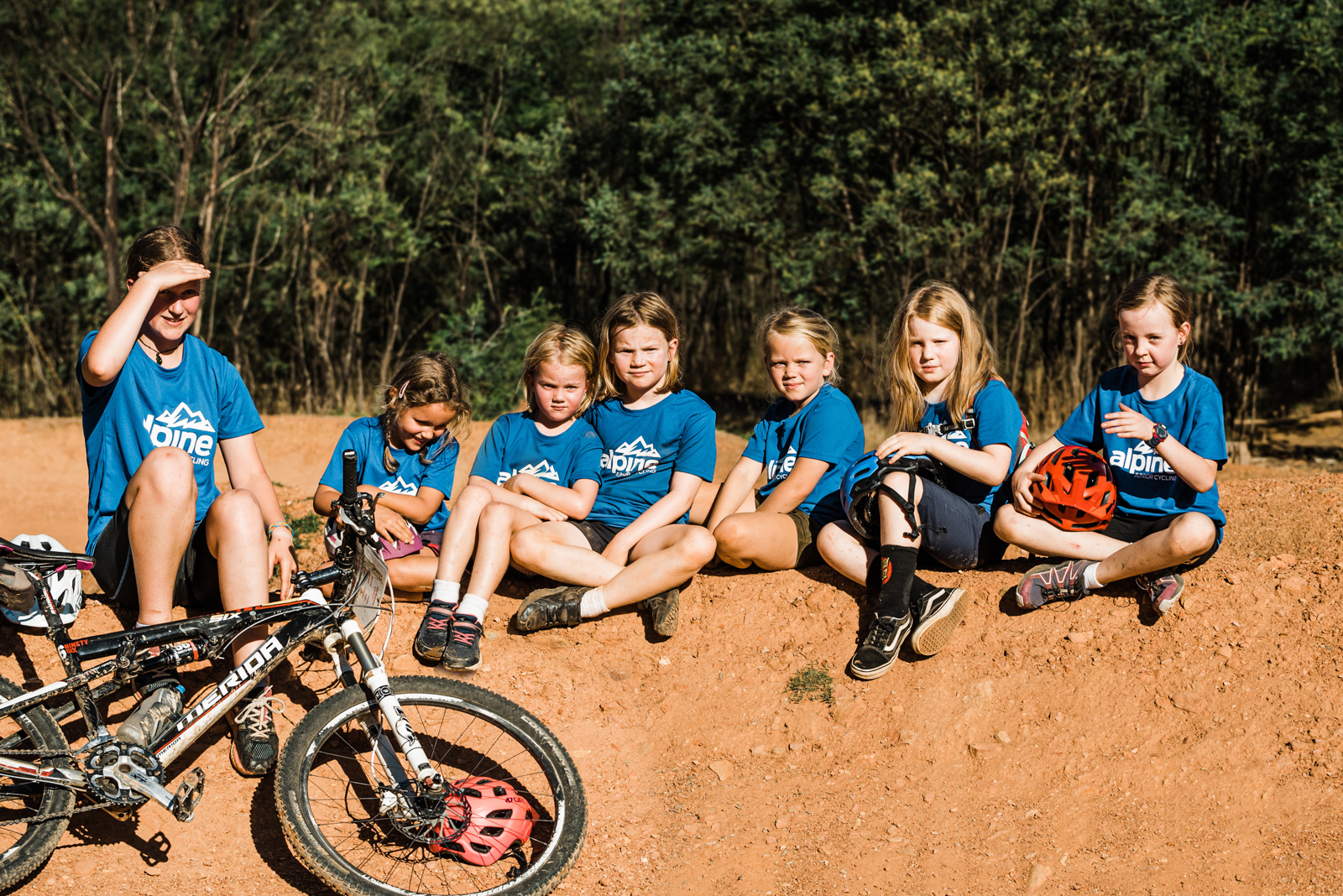
‘The junior programme has made me enjoy mountain biking a lot more. It’s helped me with my skills and made me feel like a part of the riding community. The Alpine Cycling Club isn’t just mountain biking, so you’re mixing with road cyclists and other disciplines as well.’
Jake says that the inclusive vibe the club is trying to foster is something he feels when he’s out riding on a Tuesday night.
‘While mountain biking isn’t a team sport it’s still inclusive, it’s all about being out on the trails with your mates. You get to the bottom and you’re high fiving, that’s what the program and the club are about.’
The impact that the club has had on Jake as a rider has inspired him to give back through coaching younger riders, something he feels is the right thing to do considering how much the club has given him.
‘I want to be a role model for the kids. The club has given me so much so for me coaching is about giving back.’
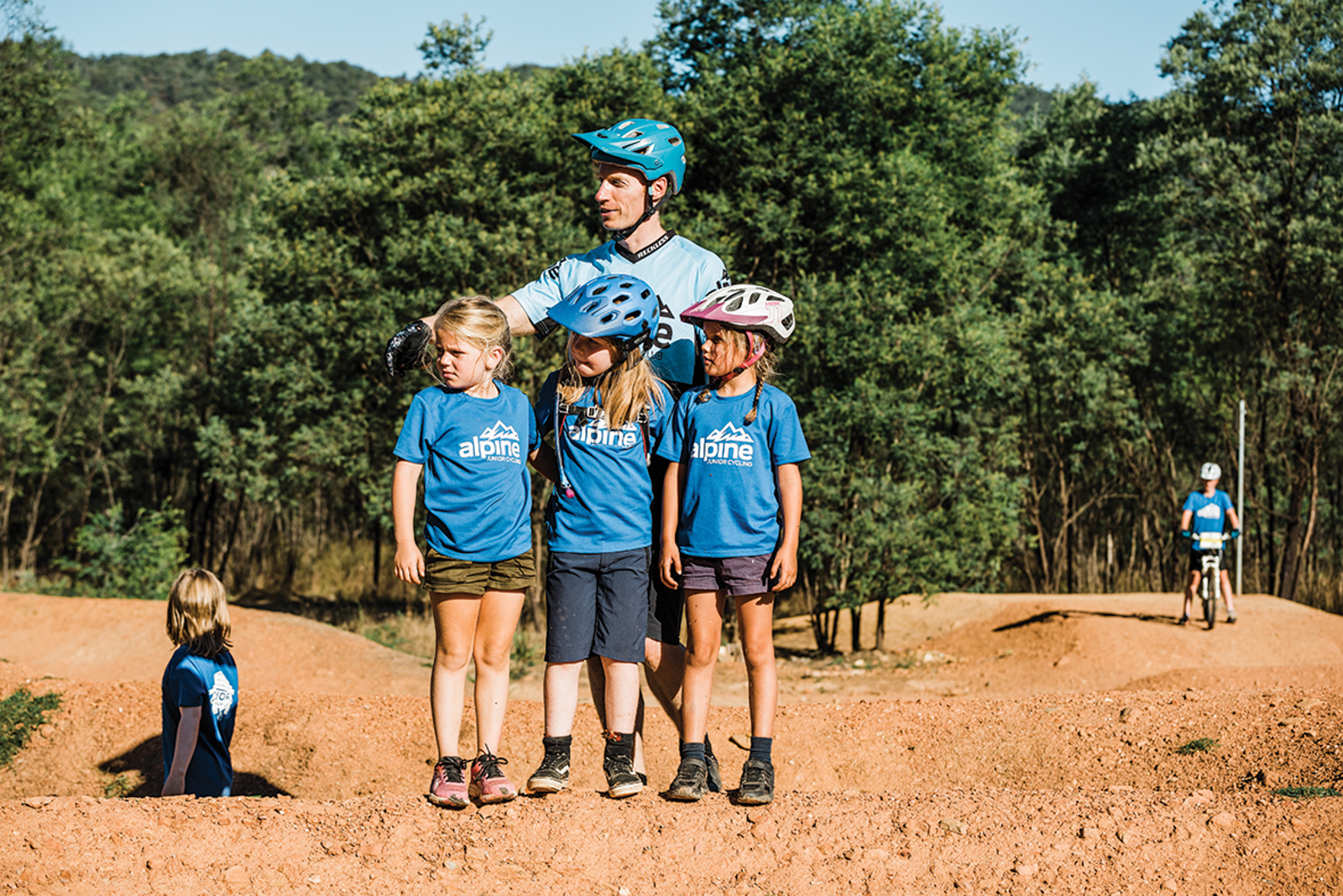
As for the future of mountain biking in Bright, Jake says that the sport is exploding in the small town.
‘Cycling has become so popular in Bright for a small country town. Our local school has rebuilt the bike shelter 3 or 4 times in the last few years to fit all the bikes that are being ridden to school. When I started out 8 years ago in the junior programme there was ten of us, and now there’s around 100,’
With ACC’s youth programme continuing to grow and flourish, and young riders like Jake seeing the value in giving back, it looks like the love affair between Bright and mountain biking won’t be slowing down anytime soon.
Mountain biking at school:
Snowy Mountains Grammar School (SMGS) is a school in Jindabyne that’s seeing a huge increase in participation when it comes to mountain biking. Martin Philpott is SMGS’ Director of Sport. He says SMGS has programmes from Kindergarten through to Year 12 aimed at supporting students in their mountain biking endeavours.
‘At SMGS there’s a huge variety of programmes designed so that students of all abilities can try mountain biking. We start off with our K-4 ‘learn to ride’ programme, aimed at enabling children to move from the tarmac to the dirt. For years 5-11 we have mountain biking as a part of our Wednesday sport programme, where 80-90 riders participate weekly.’
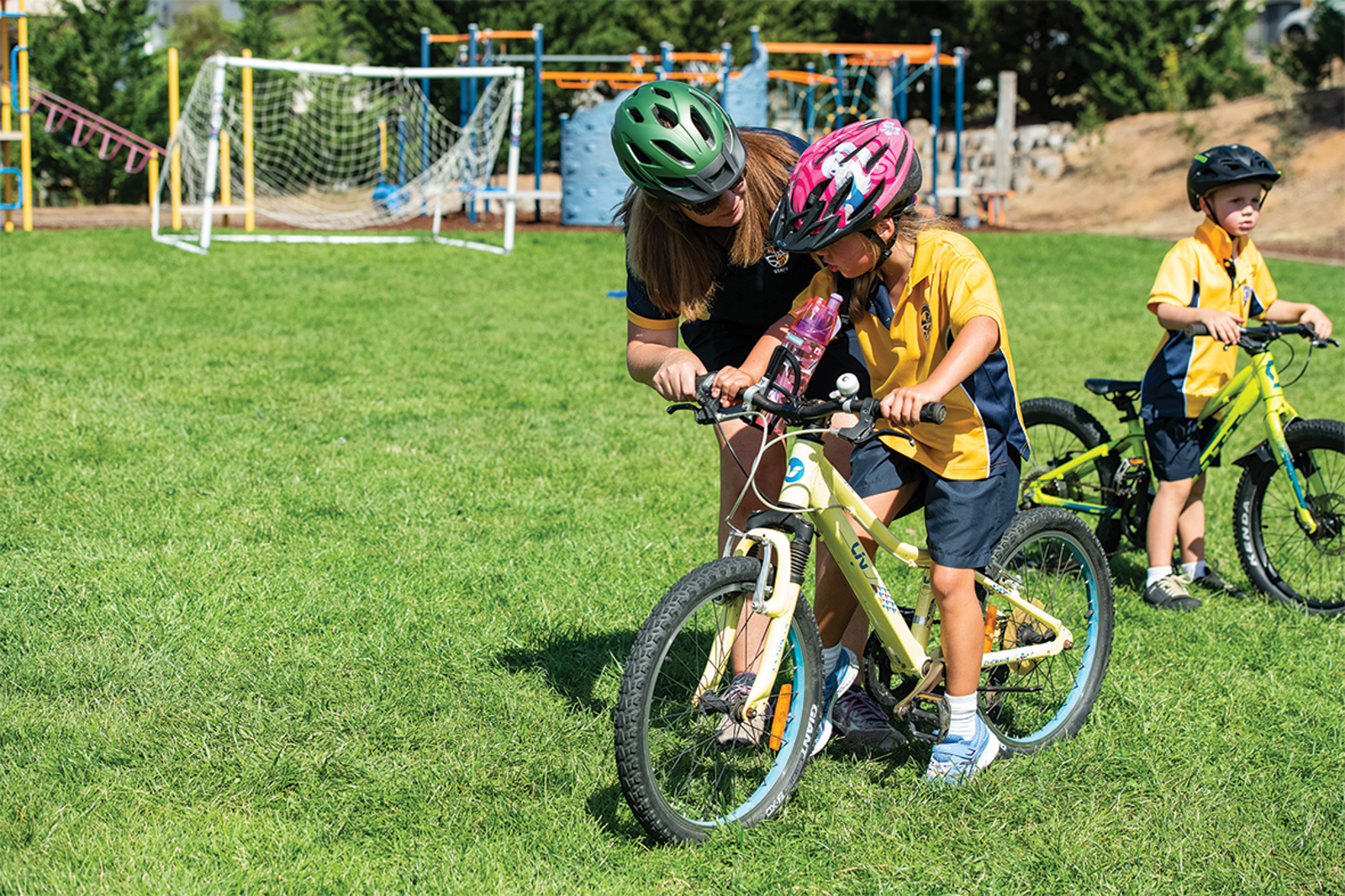
The SMGS junior program runs every Wednesday from 1.30pm to 3.40pm in three school terms out of four. Martin says the programme focuses on different riding disciplines and trails every term.
‘The programme starts in Term 4 with XC, when we might do the Thredbo Valley Track and Tyrolean tracks. Term 1 for us is a combination of XC and Downhill, including an introduction to Downhill. We normally take about 50 students up to Thredbo for our Downhill sport time. Term 2 is back to XC again, when we take them to the Bungarra trails.’
As a result of the popularity of the programme, SMGS is assisted by the Jindy Girl Riders and Thredbo Mountain Bike coaches to make sure the children get the most out of the sessions.
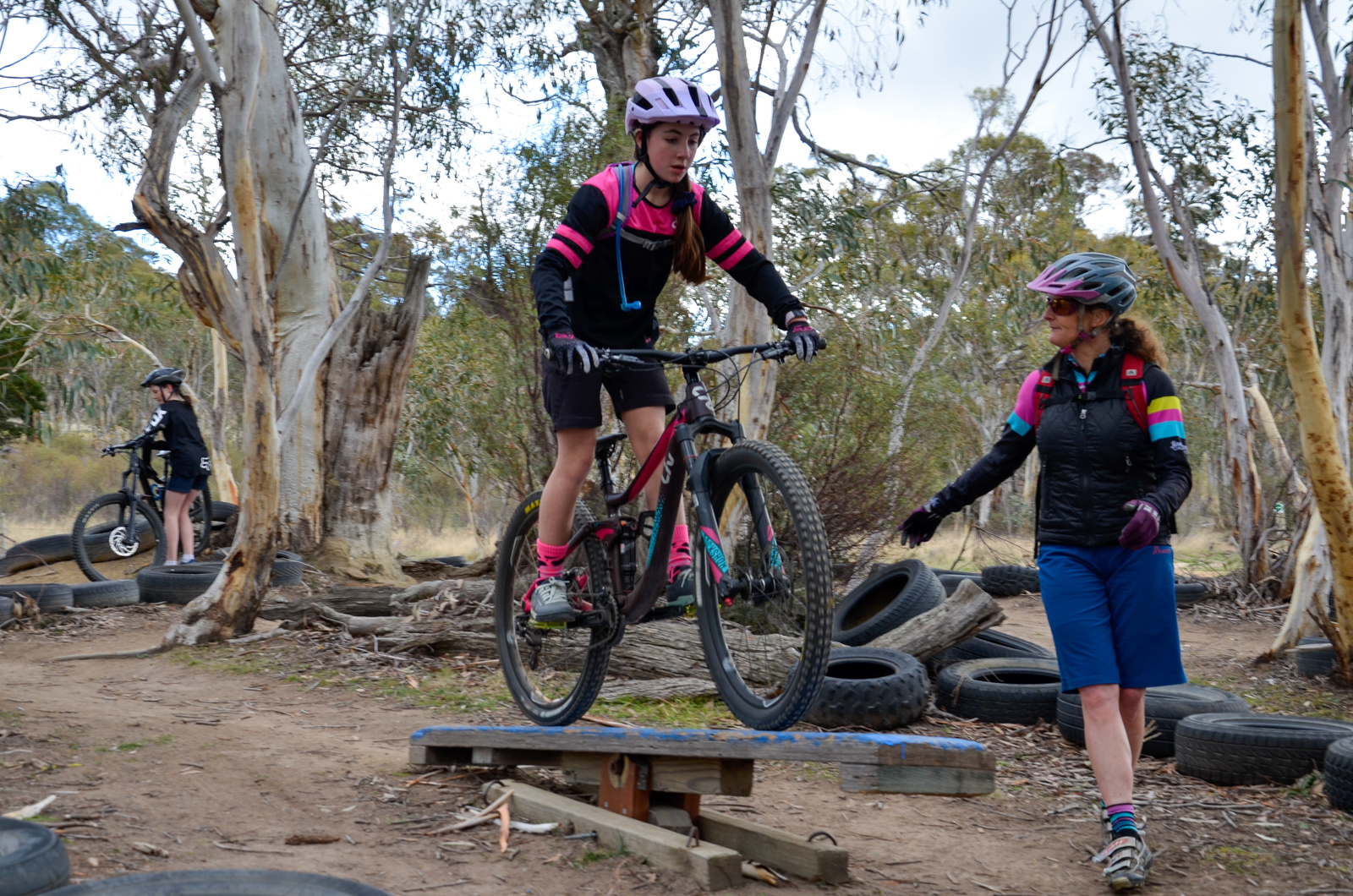
Martin says the ambitions of the students involved with the programmes are mixed, but at the end of the day it’s all about having fun and being active.
‘We have our racing programme, which focuses on the gravity and interschools series. Support comes in the form of staff attending the races and arranging transport, and providing academic support when students are away competing. For those less serious, we also have a social ride one afternoon a week after school. This picks up some of the riders who aren’t focused on performance. They don’t have to compete and just have great fun being out exercising’
The ability to take the children to varying trails is made possible by two bike trailers, each carrying approximately twenty-five bikes. Martin says when a trailer was required some years ago, senior school students designed and made the second trailer themselves as a major work project in Design & Technology, and Martin says it is great to see it being used every week.

Female participation is increasing within SMGS’ programmes. Martin says the mountain bike programme had two girls participating in 2016/2017, and now there are thirty to forty girls involved. There’s also a girls’ mountain bike retreat, which Martin says is a great way of getting girls into the sport.
‘The idea of the girls’ retreat is around skills development and the aim is to get them riding in a supportive environment.’

Similar to Bright, Martin says that owing to the popularity of riding, bike storage has become something the school has had to address.
‘Mountain bike storage for us is a big issue. We’ve built custom-made bike racks around the school, which are arranged in order of height from junior through to senior. There is also lockable overnight storage. We are now heading towards fifty per cent of the school being involved in some sort of mountain biking programme.’
With the growing popularity of riding at SMGS, as well as in Jindabyne more broadly, expect to see the growth of mountain biking in this beautiful part of the world continuing to rise.
Building foundation skills:
Another fantastic youth focused mountain biking intiative is the KidsTechnics programme offered in both South East Queensland and the ACT by renowned coaching company RideTechnics. RideTechnics owner and head coach Dylan Cooper says he’s seen a number of drastic changes in their junior programmes in the last year alone.
‘Our youth programmes are changing rapidly in two main ways. One is that we’re seeing more entry level riders, riders whose parents don’t necessarily ride. The bikes are lower end or borrowed, and they may not have ridden off road much at all. The second is the sheer demand for programmes, I’d say it’s a 250 percent increase in the last year.’
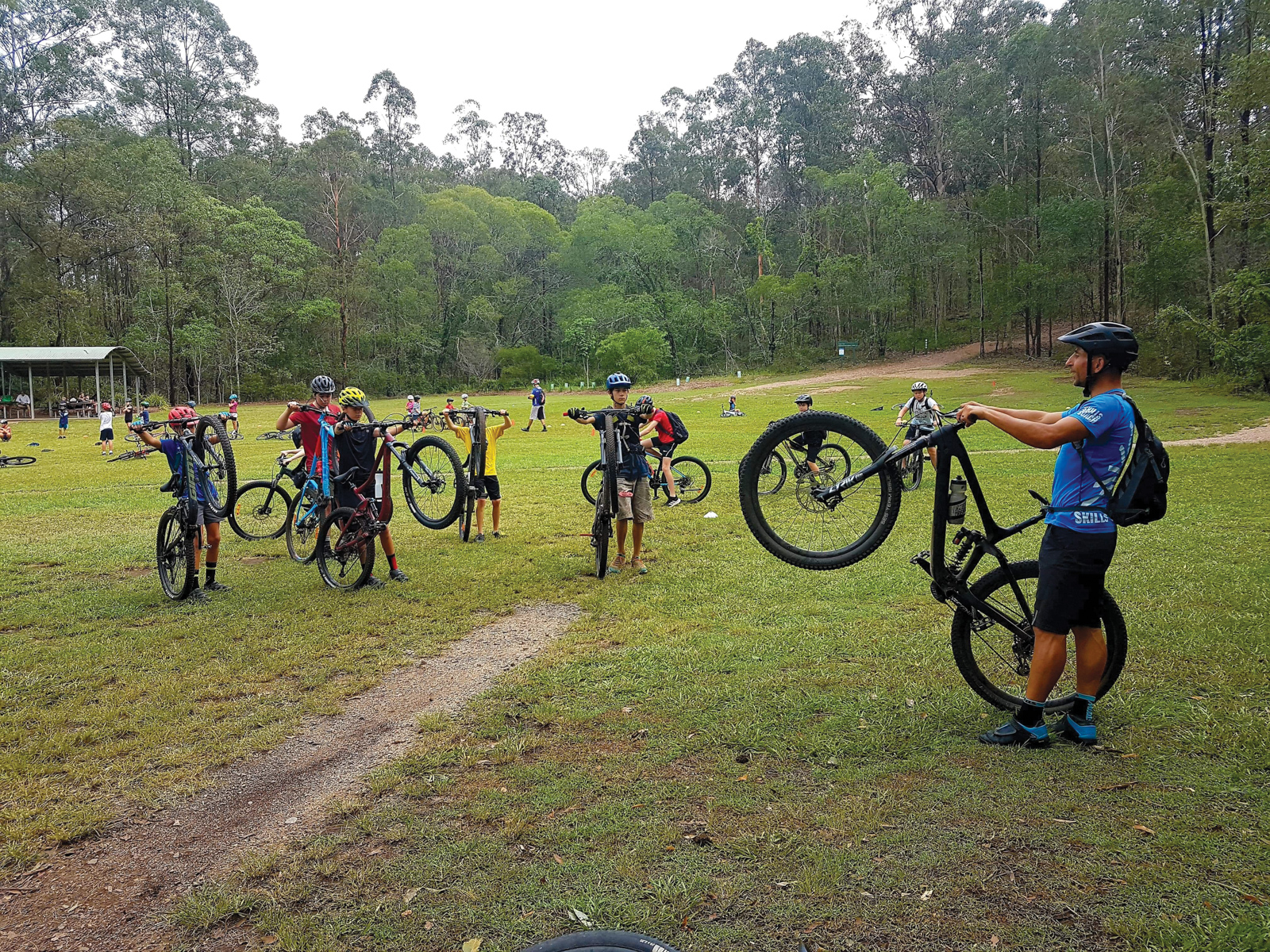
With lots of new riders entering the sport whose parents may not be mountain bikers, Dylan says it’s important to make sure the kids have the appropriate equipment to ride off road in a safe and enjoyable way.
‘We do a lot of vetting during the sign-up process. If it sounds like a child might not have the right equipment, we’re able to talk to the parents and help set them up properly to make sure they can participate and have a good time.’
Despite some riders not having mountain bikers as parents, Dylan says almost all of the kids attending their programmes are motivated to improve.
‘We’re fortunate in mountain biking in that kids who do mountain biking really want to do it. It’s not like other mainstream sports where the parents have often forced them to do it. It’s not a ‘default sport’ so the kids have really chosen it for themselves.’
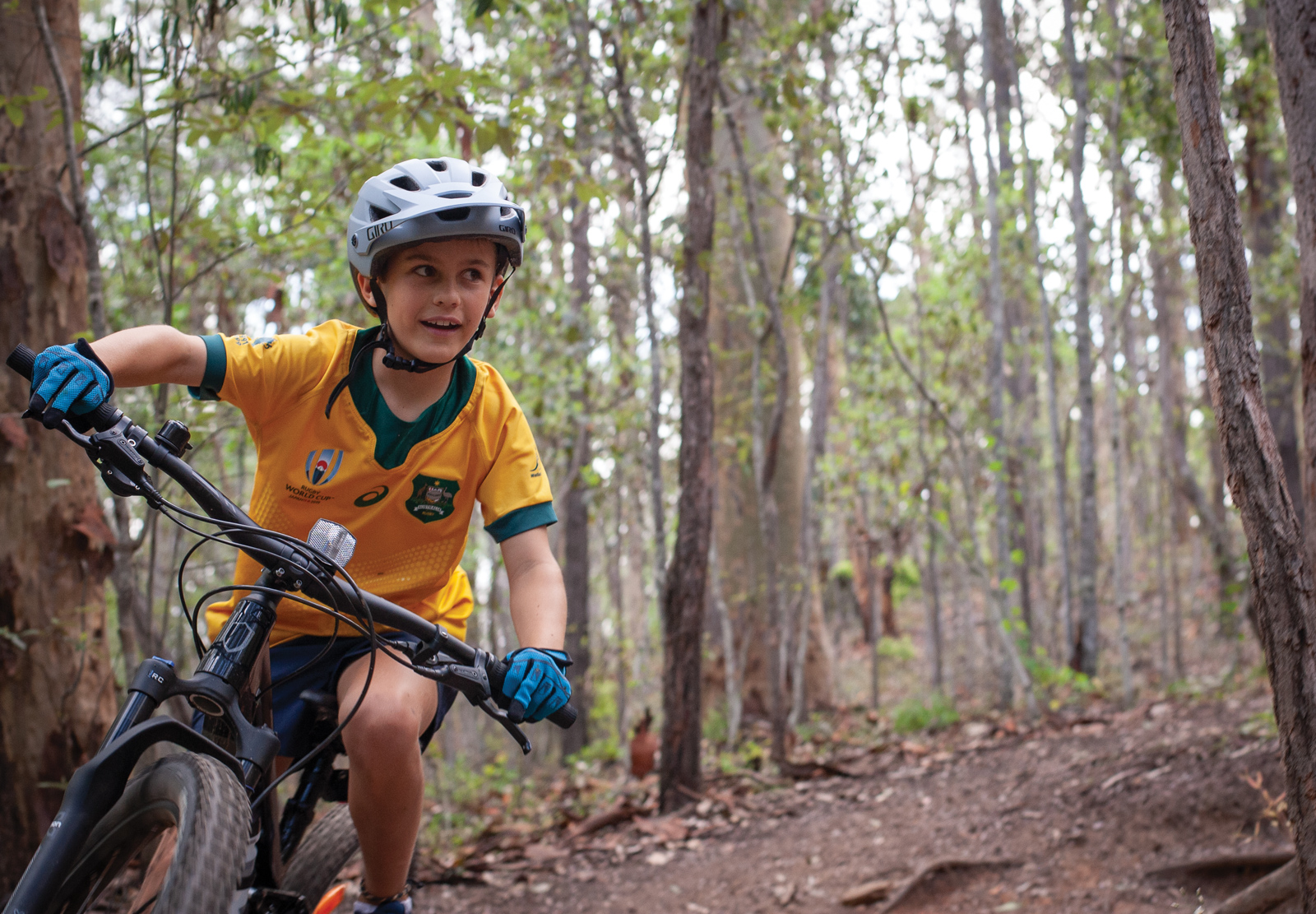
Dylan says that regardless of whether the kids have competitive ambitions or purely recreational ones, the progress they make within the KidsTechnics courses never ceases to amaze him and his fellow coaches.
‘With kids you’re starting with a clean slate, they don’t have bad habits that have formed over many years. If you demonstrate things well, they’ll see what you’re doing and mimic it. It’s amazing what these kids do straight up. Over the years we’ve refined how we word things so that the kids understand exactly what we’re asking them to do. We also do less reps, instead of doing say 8-10 goes, these days it’s 3-4. At the end of every programme, we’re amazed by the progress.’
Despite the huge increase in demand, Dylan says KidsTechnics will be limited to the ACT and SEQ for the time being, as ensuring the quality of coaches and professional delivery of the programmes is paramount.
‘We’d rather keep to where we are and focus on doing that well. We’ve invested a lot in formulating the programme that we run in 3 days of two-hour sessions, which we feel is the optimal for improvement. You can pack a lot into three days. Especially for the kids under 11. A day here or there isn’t enough.’
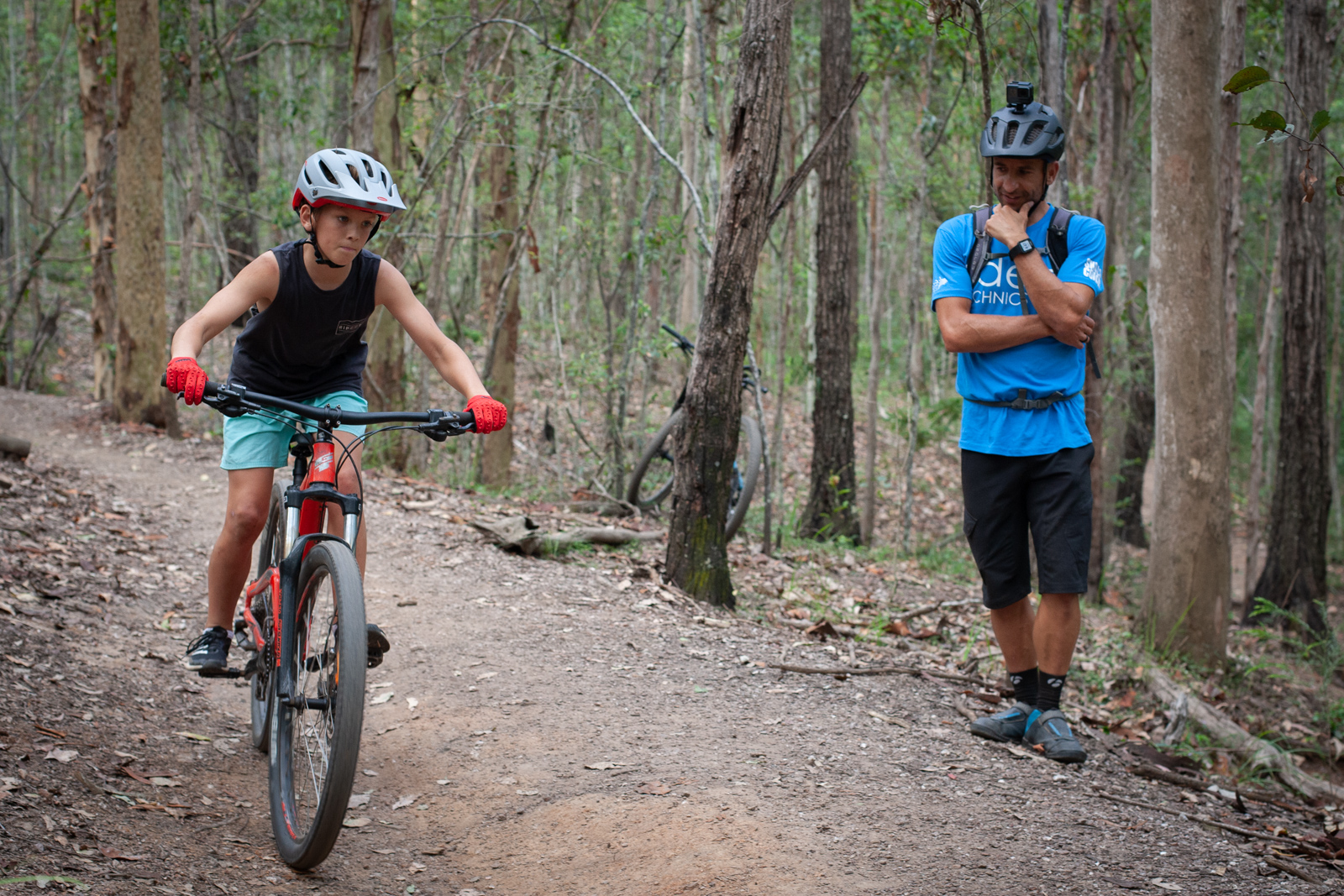
In terms of kids that are interested in racing versus those riding for enjoyment, Dylan says the shift amongst children mirrors the adult riding population.
‘The numbers in terms of kids wanting to race is quite similar to adults these days, about five percent are interested in racing. Five years ago, it was more like 80 percent. I think this is because you used to have to race to get into the sport and meet other riders, but that’s not the case anymore.’
Overall, it’s clear there’s plenty of progression in the space of mountain biking programmes for young riders. The old school method of juniors being pushed into racing is evolving with the sport in the direction of inclusivity and letting kids ride their way. With organisations like those we’ve spoken to in this article onboard, the future is full of opportunity for the young riders of Australia.

